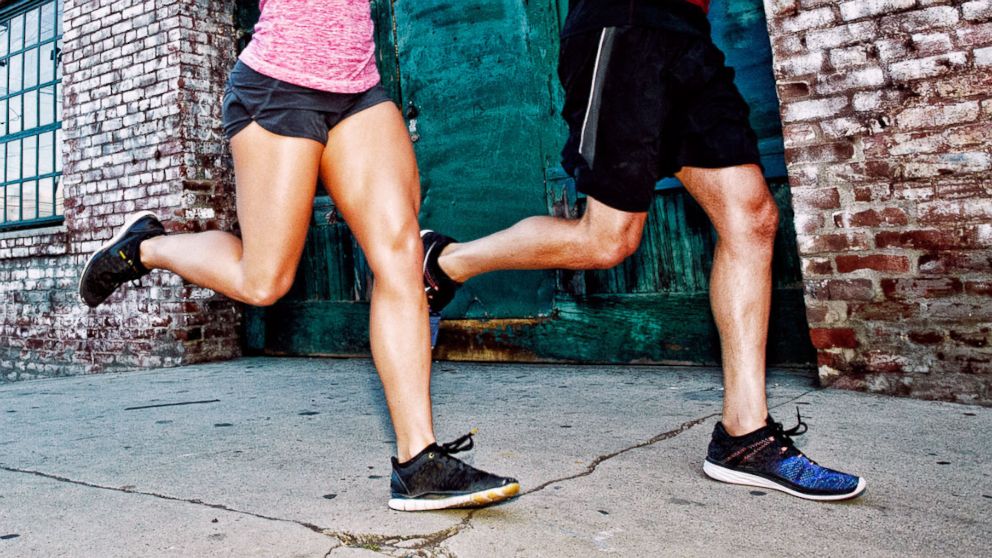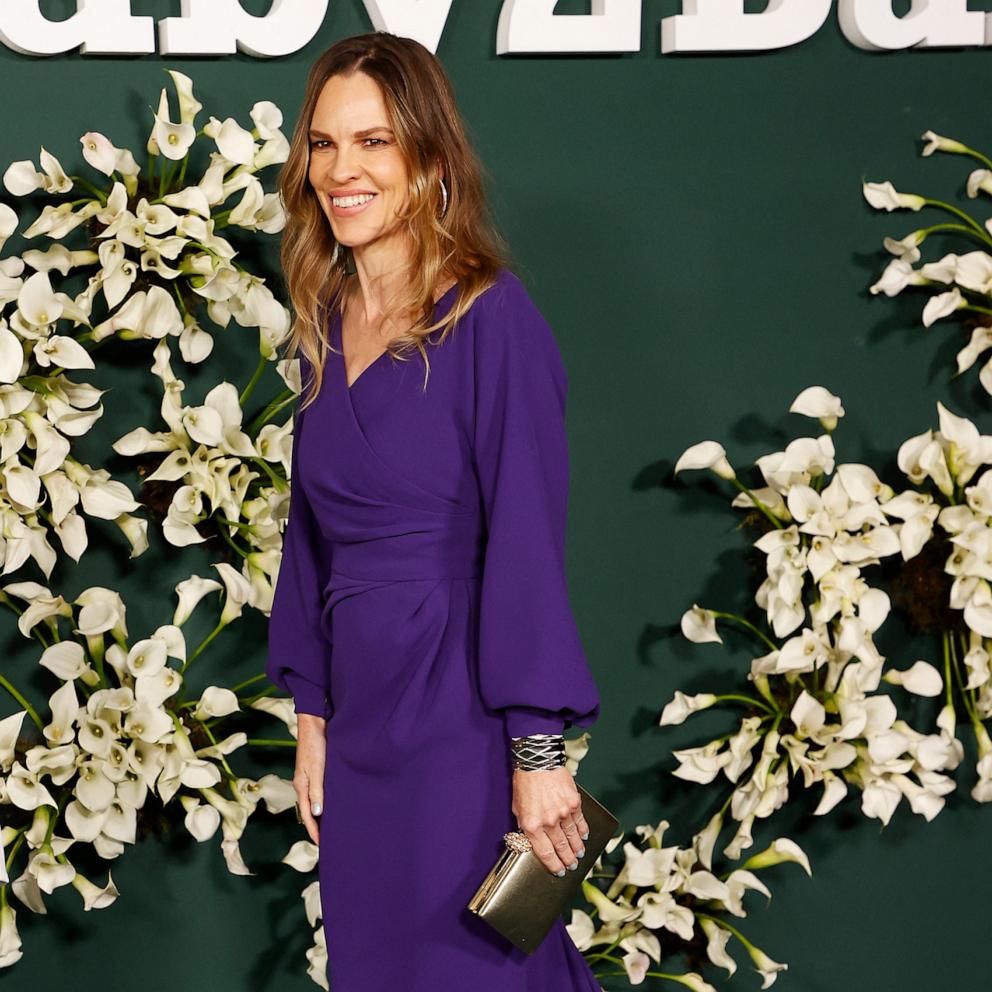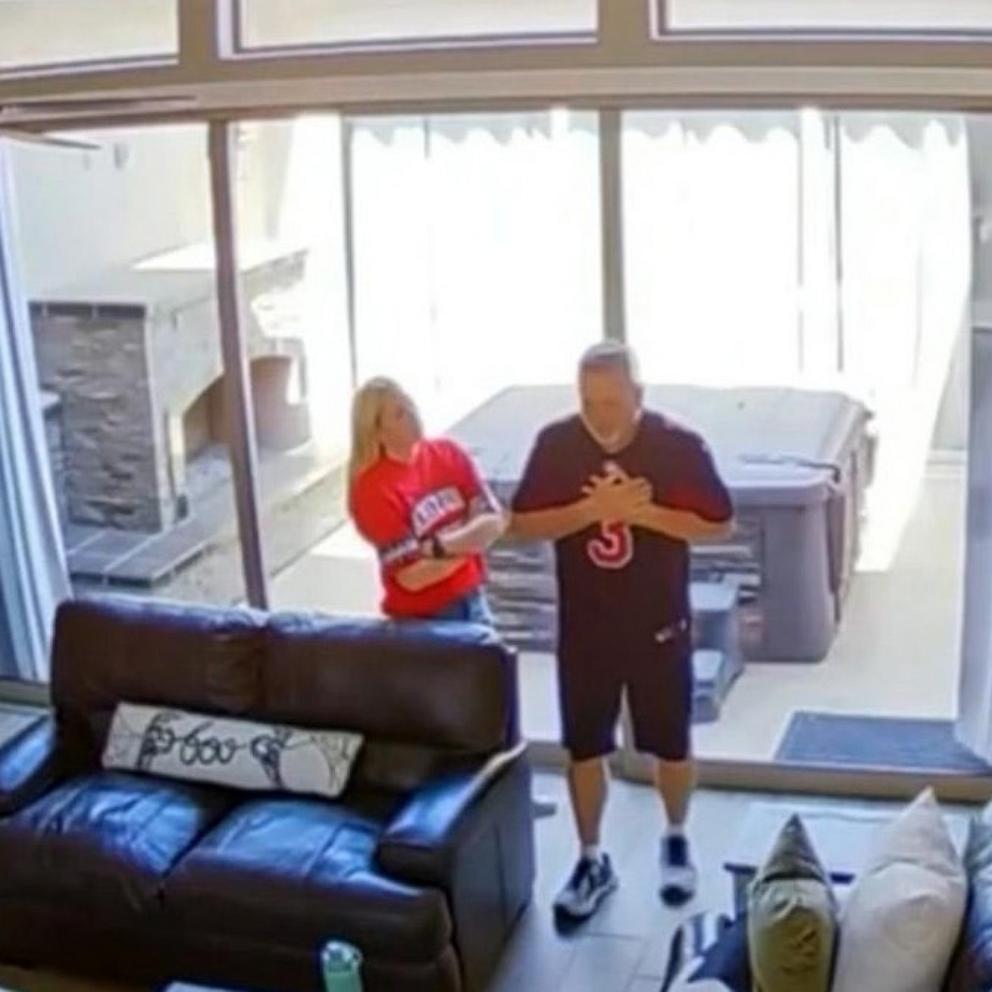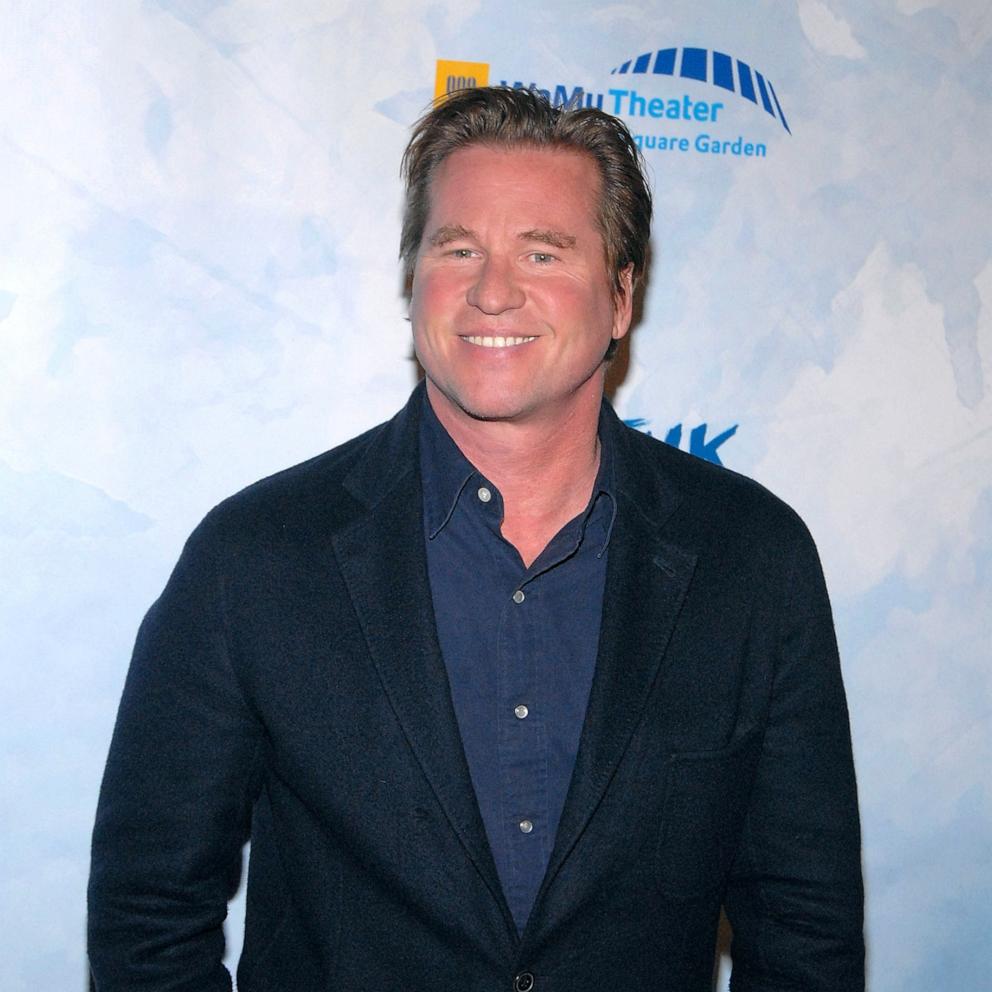Can You Get Good Running Shoes for Less Than $50?
— -- Whether you are jogging, walking, or just trying to look good in your kicks, running shoes can be expensive. According to marketing firm Statista, the average cost of running shoes increased 21 percent from 2007 to 2014. A trip to the sporting goods store can set you back $85, $110 or $260, but there are less expensive options. I shopped department stores, superstores and online shoe outlets to find four options under $50. The question: Can you comfortably run in shoes that cost less than $50?
The shoes:
$49 Skechers GOrun 4
$44 Reebok Twistform Blaze
$34 Champion C9 Legend
$14 Athletech running shoes.
I shipped three pairs of each to the Portland, Oregon, lab of biomechanist Dr. Martyn Shorten.
Dr. Shorten has created a series of tests to evaluate running shoes for manufacturers and runners' guides. He first puts the shoes on a device that measures cushioning. Then he uses another machine to quantify flexibility. He cuts the shoes in half to inspect the internal construction, and finally uses a test runner in a motion capture suit to analyze how each pair affects gait and body movement.
We decided to have Dr. Shorten analyze each pair and then I ran in the sneakers to evaluate how they feel for me personally. Before we get into each brand, here are the five things I learned from Dr. Shorten about buying inexpensive running shoes.
1) The best investment you can make in your running is to have your gait analyzed. Go to a running store and have them look at how you run. Do you pronate? Do you run on your front foot? Mid-foot? Are you a heel/toe runner? Dr. Shorten says that once you know if you have any specific issues (pronation is the most common), you can buy shoes specific that address that need. But if you have a standard gait, he says any shoe that’s comfortable should work. What makes a shoe comfortable? Dr. Shorten breaks it down.
“Make sure you have some wiggle room for your toes, run around it in, and don’t just walk around in it in the store," he explained. "It should feel really good, no chafing, no rubbing. It shouldn’t be like a weight on the end of your foot. If you can’t feel it, if you don’t notice it’s there, then it’s probably a good fit for you.”
2) Running shoes don’t have a shelf life. Use them until they start to fall apart or they lose their cushioning/comfort.
3) Buying last year’s model on sale is fine. Running shoes don’t expire based on how old they are, they only need to be replaced after prolonged use.
4) If your child doesn’t have any noticeable gait issues, the same rules apply; if less expensive shoes are comfy, Dr. Shorten says they won’t be harmed wearing them.
5) In his research, Dr. Shorten asked thousands of people who identify as runners how many miles a week they run. The median amount was 8 miles. If you want to buy top of the line engineered running shoes for those 8 miles, awesome, but don’t let cost be a barrier to entry. Many of the guides and write-ups of the high-end shoes are for people who log much more than 8 miles a week and have more technical needs from their shoes.
Breakdown of the shoes:
$49 Skechers GoRun This shoe scores highest on all of the quantitative tests for cushioning, stability and support. Dr. Shorten adds that the shoe “is quite light, flexible, it’s well cushioned.” Skechers has had some real success with its running shoes. A different shoe in the Skechers GOrun line made it into Runner’s World Best of 2016 guide. This $49 shoe felt great. It was incredibly light and had a ton of arch support.
$44 Reebok TwistForm Blaze I love the look of these shoes and they are crazy comfortable for walking; they came in second to the Skechers in the cushioning tests. Dr. Shorten, however, pointed out some negatives.
“I’m a little concerned that it has this very thick soft in-sole memory foam and not much other cushioning,” he said. “This will feel very comfortable in the store but once you’re out on the street running it will flatten out and the shoe will feel much harder.” When I run with the shoe the memory foam isn’t quite right for me in that my foot feels like it’s moving around inside the shoe as I run.
We reached out to Reebok and they said, "All Reebok running footwear is designed to meet specific consumer needs and we thoroughly test our technology to meet high standards. Memory Tech is a comfort technology that has been engineered and tested to enhance comfort for our consumer. The Midsole foam we use in the TwistForm shoe in question works in concert with the sockliner and the overall shoe to provide a desired running experience. In addition to Memory Tech we also have a sockliner technology called Memory Tech Massage that offers comfort and resiliency. Currently we use this in higher priced products, but plan to bring this experience to more products in the future."
$34 Champion C9 Legend Running ShoesThese shoes look good and feel solid when you walk in them. Its test results didn’t beat the Skechers shoe but Dr. Shorten likes the construction. “It has a nice upper and some good padding around the ankle, nicely padded tongue,” he said. But when I ran in these, my particular style of running caused some rubbing and pressure at the end of the laces as I flexed my foot to push off.
$14 Althletech Running shoes (Kmart house brand)Dr. Shorten points out that these shoes are not like the other shoes in our samples that have one-piece construction on the front foot. “I see some old style technology, I see basically overlays that are held on with stitches,” he said. And when I walked in the shoes I did feel a bit of segmentation as my foot flexed. Another factor Dr. Shorten points out is durability. “I see a one piece unit sole with no rubber on the outside which means it’s not going to be very durable,” he explained. But the Althletech shoes scored pretty well in the stability test Dr. Shorten did, coming in second to the Skechers in stability. When I took the shoes out on the road, I was pleasantly surprised -- they offered a good amount of cushioning and support. I liked them as running shoes second only to the Skechers.
We reached out to Sears/Kmart, who said in a statement: "The running shoe category is broad. The Athletech Dash is designed for the growing active and casual lifestyle segment, and not marketed as a high-end running shoe. The Athletech Dash is highly rated by our members and, at a price point under $20, a tremendous value."




